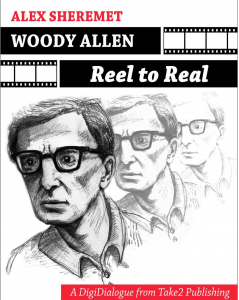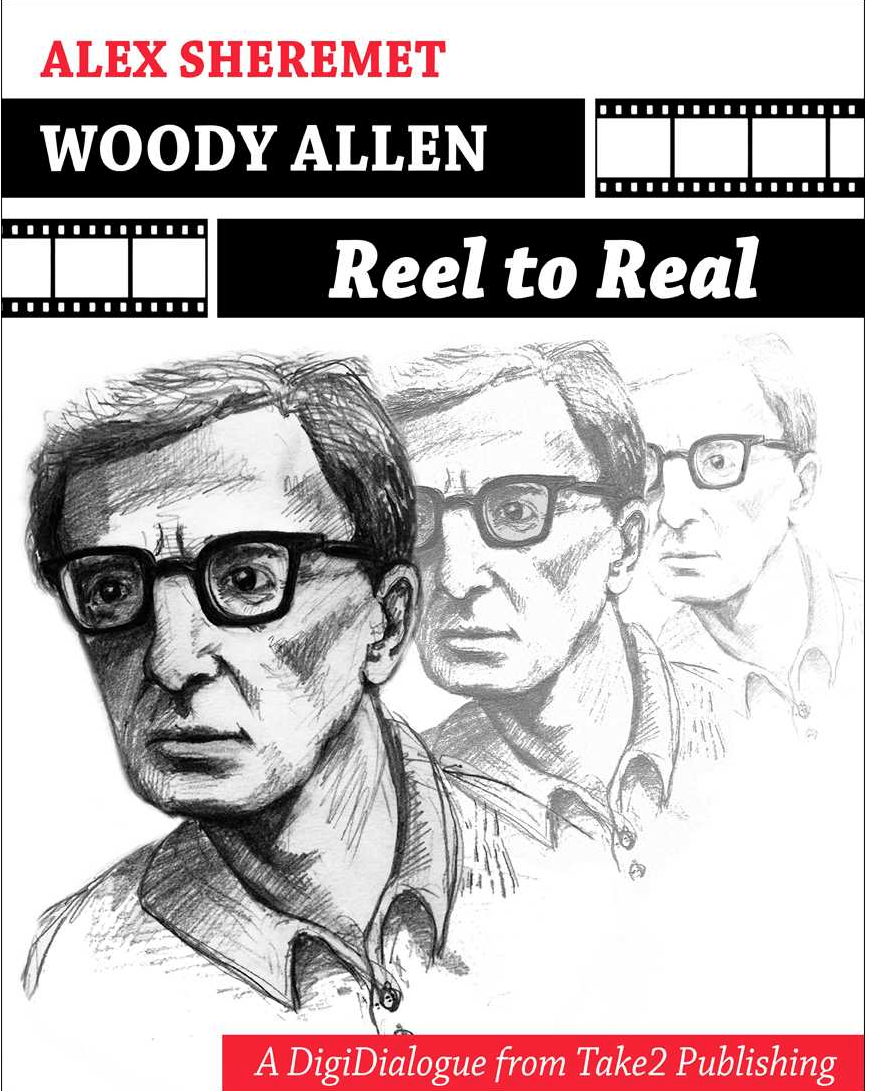Interview: Alex Sheremet on Woody Allen (Part 2)
Posted on September 6, 2015 at 3:23 pm

. You can read Part 1 here.
He keeps coming back to a character’s taking moral judgement into his own hands to commit murder, most recently this year in “Irrational Man.” What do you think this idea of literally getting away with murder is so resonant with him?
I think the fixation began with Woody’s desire to show death and evil as realistically as possible, and Martin Landau’s Judah Rosenthal (Crimes And Misdemeanors) is, perhaps, the most realistic killer captured on film. In short, it is obvious that the number of murders (usually unsolved) far outnumber the confessors- meaning, guilt is a malleable thing, and can be siphoned off for one’s own uses and rationalized away. Art has rarely shown this (especially not well), and the biggest example that we have of murder and guilt in the arts is Crime And Punishment. This film is an inversion of that, and even though Cassandra’s Dream does show guilt eating away at things to the point of destruction, even that is treated in a way that basks in its own inversions and exploits the viewer’s sense of complacency.
Bergman and Fellini are often mentioned as clear influences on Allen. Who else would you add to that list? And which current directors most look to him as an influence?
Bergman, Fellini, The Marx Brothers, Charlie Chaplin, Akira Kurosawa, Bob Hope (especially the persona), and Buster Keaton all had their place. I probably would not add much to the list of artistic influences. As for the work that’s been influenced by Woody, there is- literally- all of the ‘city’ rom-coms from the 1980s-90s, to shows like Sex And The City, Derek Cianfrance’s Blue Valentine, Whit Stillman’s Metropolitan, Kevin Smith’s Chasing Amy (his best film, in fact) and- I’d wager- the majority of films that try to put romance front and center as a ‘serious’ topic. I think the majority of these attempts failed, however, partly because so many fans take works like Manhattan and Annie Hall at face value and don’t recognize how so many of their illusions are being skewered.
Which is his most under-appreciated film?
It’s a tie between Stardust Memories (one of the 10 or 20 greatest films ever made) and Another Woman. Stardust Memories, in particular, has been seen as an ‘attack’ on Allen’s films, which is both ridiculous and irrelevant. In fact, it is one of the deepest comments on art and human relationships that I’ve ever seen, from the illusory ending of the ‘inner’ film, to the way that Sandy- despite being neurotic and the like- is both wanted and demanded by thousands of others not necessarily for his fame and money, but because he is a complete person. He simply knows HOW to create and retain a measure of health and self-purpose that the others do not. Yet his flaws are front and center, too, even as the film ends on a positive note: that all of these conflicts, from Sandy’s fears, to his fans’ neediness, are self-made, and immaterial in the end. In short, no one escape’s Woody’s eye…not even great artists, as Sandy apparently is. It is simply wrong, factually, to call Stardust Memories dour. And it has more a ‘happy’ ending. It is an ennobling one.
Is “Radio Days” is most autobiographical? Or “Annie Hall?”
Probably neither. Radio Days captures the spirit of what Allen has gone through and valued, but not necessarily the specifics. Annie Hall has small parts of his relationships and upbringing, but that’s about it. Stardust Memories and Interiors have elements of his life with Louise Lasser, and Husbands And Wives is viewed- incorrectly- as a kind of corollary to his relationship with Mia Farrow. It’s hard to get an artist’s “real life” from his work of art, unless one is dealing with a memoir. But you get much more than that: you get an artist’s INNER life, which is necessarily richer than the details. It’s not the details, per se; it is the REACTION to these details and how they’re interpreted and re-interpreted that matters most.
You say that with “Mighty Aphrodite” Allen stepped “outside his comforts.” What was different with this film?
https://www.youtube.com/watch?v=-qz_zB2Pc2gIt featured a number of self-conscious changes/additions. The ridiculous use of the Greek chorus might have an analogue with his skewering of the Russian literary classics in Love And Death, but while the earlier film was all gags, there are a number of truly serious and poetic moments in Mighty Aphrodite. For example, Michael Rappaport’s character is probably the dumbest character he’s had to this point- and while Cheech (Bullets Over Broadway) was a thug, he was an intelligent one. By contrast, Michael Rappaport plays an idiot that, instead of merely being forced into the role of a pure idiot, is fleshed out by whatever means possible for such a limited human being. Thus, when Mia Sorvino is having dinner with Rappaport, you see just how little the two can talk about, and how little- by extension- most people really have in their own relationships, built, as they are, upon things that don’t really last. And Rappaport, on his end, delivers a wonderful little monologue about a ‘dream’ he has- to be dropped naked into the middle of the snow by a bird. No matter how comic it is, there is also something knowing about the scene, too- that these are the limits for so many people, anyway, and that this is the way they create and retain meaning. In short, characters get precisely what they deserve: criticism, prodding, but also the opportunity to show off their own depths, if in fact they are available.
Which is your favorite score in his films?
I’ve always been partial to the music in Hannah And Her Sisters and Radio Days. The latter probably has Allen’s best use of music, while Hannah does interesting things with song titles and lyrics that often go at odds with what’s on the screen- as if Allen means something other than what he shows.
What do you want him to do that he has not done so far?
At this point, I’d want him to simply rest. He’s done more great work than almost any other filmmaker in cinematic history. The longer that he attempts to draw his material past the point of his own talent, the more filler he’ll be responsible for. If his last film were 2007’s stellar Cassandra’s Dream, we would all be tantalized with ‘What’s next?’ and hope that he’ll continue. Instead, we had the question answered in a way that will simply not matter a half century from now. On the other hand, I don’t really care, personally. Again: he’s done great work. He has certainly earned the right to waste people’s time so that he could pass the time in old age. Let him do what he feels he must.


 now available on DVD.
now available on DVD.